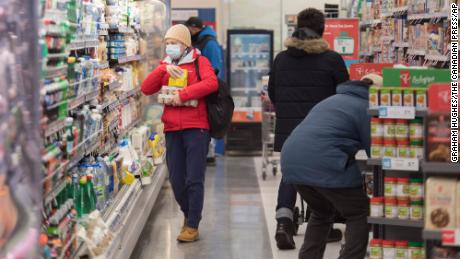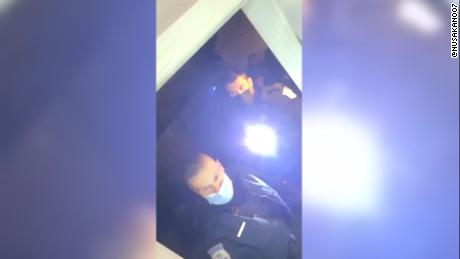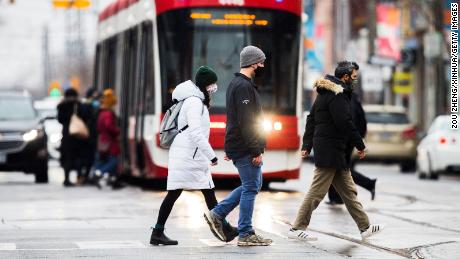Ottawa, Ontario (CNN)Quebec -- Canada's second-most populous province -- announced Wednesday that for four weeks it will impose one of North America's tightest lockdowns, including a strict curfew. Officials fear that without it, the hospital system will be overwhelmed.
"We are in a race against time," said Premier Francois Legault, adding that Quebec is so far losing the race.
A 8 p.m.-5 a.m. curfew will go into effect on Saturday. Restaurants, gyms, theaters and most retail stores will remain closed for at least four weeks. Legault calls it "shock therapy" that he hopes will not need to be extended.
Elementary schools will reopen as planned next week, but more students will be required to wear masks. High schools will reopen January 18.
All Quebecers are being urged to stay home and travel only if it is absolutely necessary. Those who fail to comply could face fines in the thousands of dollars.
"We're talking here about saving lives and we're talking about saving our health care system," said Legault.
For weeks, many health care professionals have been lobbying the Quebec government to lock down further, after warning its hospital system was buckling.
"None of us wants another hard lockdown, but we're really in a very precarious situation at the moment," said Dr. Marina Klein, research director and infectious disease specialist at the McGill University Health Centre, in an interview with CNN.
For months, Quebec has seen a steady rise in new cases, hospitalizations and coronavirus deaths.
Data from Quebec's health ministry shows about 1,400 people are currently hospitalized with Covid-19, second only to the province of Ontario, with 76 new hospitalizations reported on Tuesday alone.
A Quebec health advisory group warned in December that Quebec could exhaust hospital capacity by the end of January if hospitalizations continue to increase.
Klein says the partial restrictions that have been in place in Quebec since fall have been ineffective against the spread of the virus.
"It's like a slow torture that we've been under, as opposed to the alternative solution, to do something that's very hard, very difficult for a short period of time which is likely to be much more effective," says Klein. She said health care workers are exhausted and morale is low, as many have been exposed to the virus or are already infected.
Canada has been coping with a stubborn second wave of the virus, which is now growing more serious by the day, according to public health officials.
"Covid-19 is spreading among people of all ages, with high infection rates across all age groups. However, nationally, infection rates remain highest among those aged 80 years and older who are at highest risk for severe outcomes," warned Dr. Theresa Tam, Canada's chief public health officer, in a statement released Wednesday.
"The downstream impacts of weeks and months of elevated disease activity continues to be seen in still rising numbers of severe illness and death..."
Ontario, home to two in five Canadians, also is dealing with a surge in hospitalizations despite having imposed its own province-wide lockdown December 26. Ontario's government says it is watching Quebec carefully and considering tougher measures.
"I always say everything is on the table but let's see where the numbers go," said Doug Ford, Ontario's premier, during a press briefing on Tuesday.
Legault says businesses and schools are not a major source of spread. Instead, private, social gatherings within homes have led to the crisis. He said a circuit breaker type lockdown was now necessary.
"My concern at this moment is that we're facing a potential introduction of an even more transmissible strain, that's the one that's being seen right now in the UK and if that were to take hold in an already out of control epidemic that we have, we're talking about a situation that we've never seen," said Dr. Klein.







